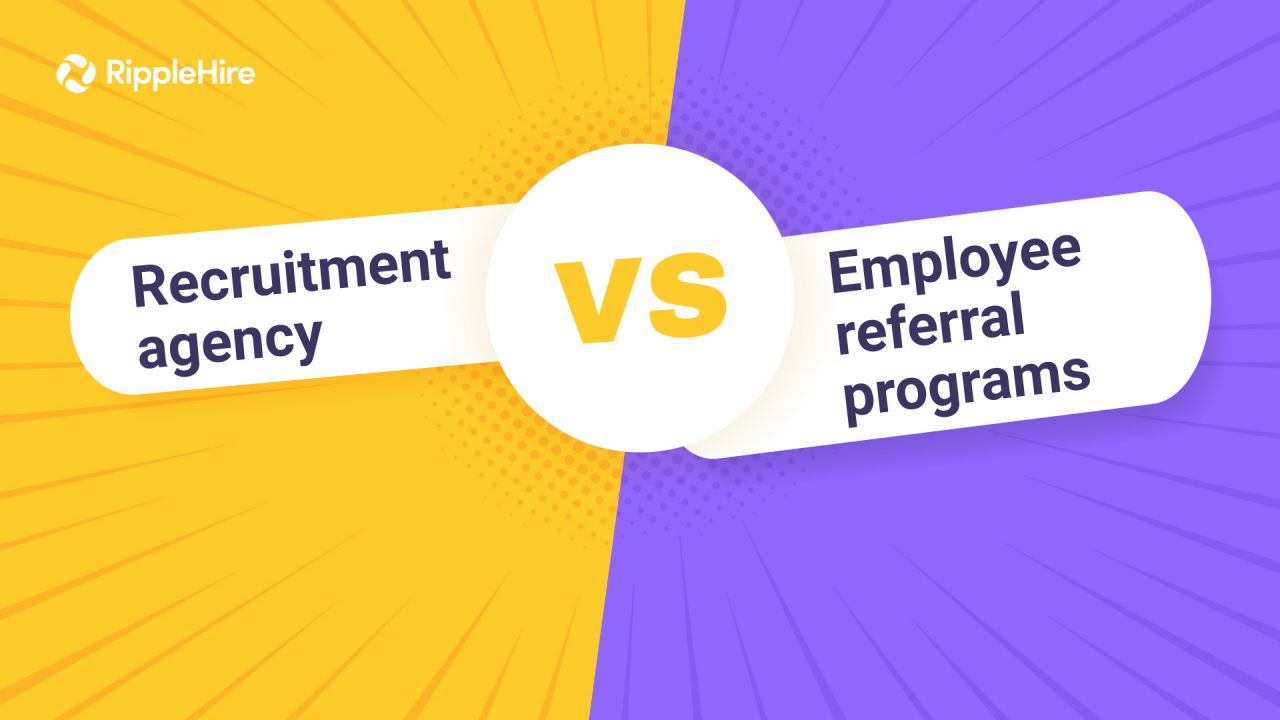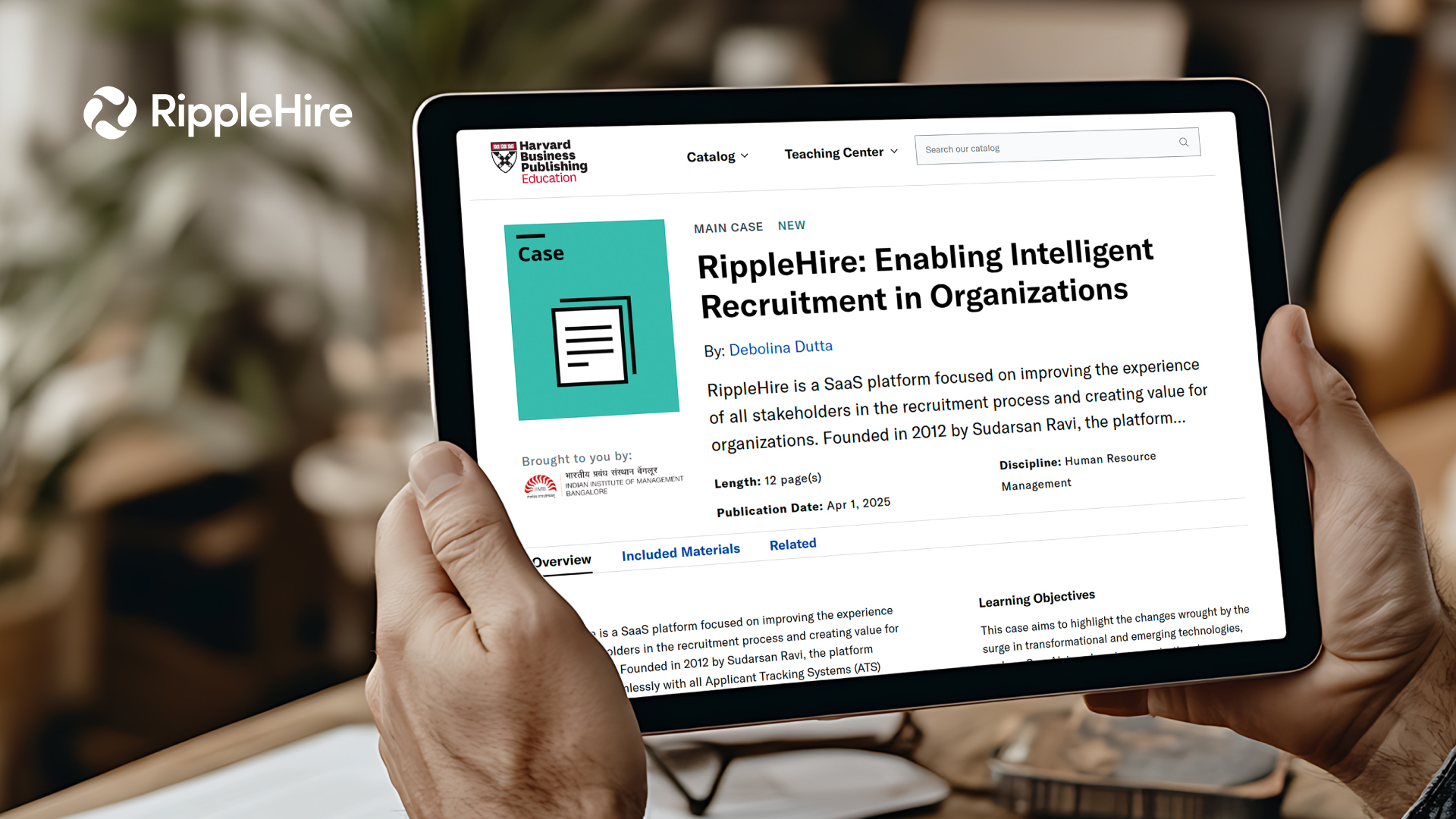Talent acquisition is as competitive a field as the Olympics. The pitfalls and the sheer burden of it all, and not to mention how thankless the job feels at times. But there are ways to reduce the workload, or at least make the process more efficient.
In this article, we have covered the pros and cons of two very popular methods of recruitment: hiring through recruitment agencies, and employee referral programs.
Here’s a deep dive for you.
Pros of hiring through recruitment agencies
Better access to different talent pools
Most recruitment agencies are expert headhunters and resume-miners. With years of specialized experience behind them, they know where to look for, whether it be LinkedIn, job portals, job fairs, or even social media. Recruitment agencies are constantly on the lookout for talent and their reach is wide.
Especially in cases where you are looking to hire a lot of employees in a short span of time, going through a recruitment agency is much faster.
Higher quality of preliminary screening
Recruitment agencies know what to look for in a resume and how to judge whether it is worth a second glance. They are also acutely aware of the value of the company HR’s time, and hence do their best in the preliminary screening. They are extremely efficient at filtering out resumes of candidates, interviewing who would be a waste of the company HR’s time and energy.
Reduced workload on the company HR
The sheer effort of looking up resumes through various channels like job boards, LinkedIn, amongst others is energy-sapping. And then there is the process of matching the resumes against the job description and evaluating the skills by reading through multi-page CVs. And once that is attended, the real interviewing starts. So all the preliminary work done by the recruitment agency reduced the workload on the already overburdened company HR.
Cons of hiring through recruitment agencies
Agencies provide same candidate to multiple organizations
Agencies thrive on presenting the same candidates to a number of organizations and that is how they go about increasing the chances of having their candidates shortlisted. And in fact, candidates approach agencies because they want to be visible to more recruiting organizations. So as a company you are never sure that you own the candidate’s profile, and exclusivity is not guaranteed.
Limited visibility to the kind of candidates required
Sure, recruitment agencies are good at screening resumes and filtering out candidates. But to put it candidly, they don’t really share the company’s vision. Why exactly is the company hiring a given candidate?
Do all the personnel at the recruitment agency understand that, especially those filtering resumes? There is always the possibility that the quantity of screening is high, but the quality of candidates is below par, simply because the recruitment agency does not understand what value the company is looking to extract from the recruited candidates.
So don’t get carried away by the reputation and past performance of the recruitment agency, and evaluate the candidate without that positive prejudice.
Higher recruitment costs
The cost of recruiting through a hiring agency is often high, even though it saves time. If you compare it with internal hiring, well, there is quite a difference. Sure, you can cover this to some extent with clauses related to payment of the fees to the agency depending on how long the candidates stay. But if the candidates do not work out well or leave abruptly, there is nothing to cover the training costs. And the salaries paid to such candidates cannot be recovered either.
Lack of end ownership
All said and done, the responsibility of getting the best out of the candidates lies with the company itself. No amount of high quality screening can guarantee that the hired candidate will be a good culture fit or perform well. So in that sense, the additional recruitment costs are not always value for money.
And if the recruitment agency intentionally or accidentally violates any laws related to providing equal and unbiased opportunities, the organization may find it very difficult to detach themselves from the recruitment agency’s actions.
Pros of hiring through employee referrals
Better joining ratios
The referred candidates are already looking forward to working with your organization because their friends already work there. So if they are selected, the chances of them backing out at the last minute are next to nil. They will join not only eagerly but also quickly. So the speed to hire is better as well, assuming that they are satisfied with the compensation and other terms of employment on offer.
Great resignation, retention matters a lot
While it is not easy to hire the best candidates, retaining them over a period of time is even tougher. The chances of referred employees resigning by itself are very low. However, we don’t live in a perfect world and in case they do resign, it is far easier to retain them, because they are more likely to be very open about the reason for resignation. And the reason is unlikely to be something that cannot be resolved (such as a toxic relationship with the boss). Better resignation-retention rates mean trusting, happier, and more productive employees.
Better culture fitment of referred candidates
The candidates that are referred through existing employees are likely to be not too different from each other. And this to a large extent, mitigates the risk of recruiting someone who will not fit into the company culture or struggle to align himself with the company’s work ethics and policies.
And besides, the new employees are coming in with a decent impression about the company and will probably find it easy to adjust.
Increased employee engagement
One of the biggest upsides of hiring through an employee referral program is that it is evidence that the referring employee is probably happy with the organization. Also, the incentive received by them for successfully recommending a good new hire will further motivate the existing employees to give their best. This will in turn further improve productivity and employee satisfaction.
Lower recruitment costs
Hiring through an employee referral program has only one additional cost: the incentive for the referring employee. When compared with the costs involved in hiring through a recruitment agency, this is a clear winning strategy.
Cons of hiring through employee referrals
Referrals generate a ton of volume
A major downside of hiring through employee referrals is that it often triggers a spike in the number of incoming resumes. At times, you might get way more referrals than how many you are looking to shortlist, and a good chunk of them would have not not filtered in any way. So it places the additional burden of having to sift through more CVs than you bargained for.
Risk of poor recommendations
At times it can happen that the referring employee recommends a candidate simply out of the expectation of the incentive attached. Or they might refer candidates who would not be a great fit culturally, in spite of knowing it, because of their own unhappiness with the company.
This can make the work atmosphere toxic and the new hires will be extremely difficult to train, motivate and manage.
To mitigate this risk, put the candidates through the regular grind. Judge them as you would judge a candidate coming through the open job market.
Additional burden of managing the employee referral program
The company’s talent acquisition team already has a vast range of responsibilities, starting from understanding the company’s vision, to managing the day to day affairs of employees. So framing a great employee referral program, driving it, and owning it end to end is no mean task. Sure, it is one of the most affordable options. But it is up to you to weigh the time and effort that goes into managing it against other options. Partnering with a player like RippleHire can really turbocharge your employee referral programs and solve this easily.
Which is better for the long term: Hiring through recruitment agencies or Employee referral programs?
Hiring through recruitment agencies has its risks, is quite expensive, and does not guarantee great hiring decisions. But it also gives you access to a bigger talent pool, reduces the workload on the internal HR, and saves time.
On the other hand, going through an employee referral program is highly affordable, improves chances of a good culture fit, and increases employee engagement. But it also has its pitfalls, and there is the additional burden of internally managing the employee referral program.
Our verdict: Referral once established generates results over and over. Hiring through agencies results in higher attrition.
In the long run, it really depends on your company’s vision and mission. If you are going for bulk recruitment in short spans of time, then recruiting through a hiring agency might serve you well. But if you are looking for better employee engagement and optimized profits, we would strongly recommend that you go for an employee referral program.
Enterprises hire at scale generally, and the value of implementing sustainable best practices cannot be underestimated. Employee referrals will help bring quality talent at a much lesser cost. So if you opt for a well planned and well executed employee referral program, you are on the victory path, especially if you are looking for scalability.






